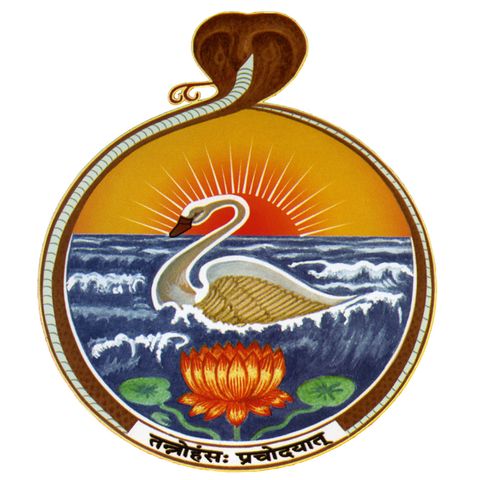Vedic Culture | Turning Life into Universal Spirituality: Marriage, Parents, Teachers, Citizens, Monks, Retirement | Swami Tattwamayananda

Descarga y escucha en cualquier lugar
Descarga tus episodios favoritos y disfrútalos, ¡dondequiera que estés! Regístrate o inicia sesión ahora para acceder a la escucha sin conexión.
Descripción
The theme of this lecture (delivered May 12, 2019) is the concrete scheme of human relationships in Vedic culture. It begins with a brief introduction to the Vedas, the source...
mostra másThere are four Vedas, each with four sections: rituals, prayers, contemplative prayers, and higher metaphysical/spiritual philosophy (Vedanta).
Max Muller was commissioned by the Church of England to translate the Vedas to show it was nonsense so that people would convert to Christianity. After learning about the Vedas, he became a devotee of the Vedas, not just a scholar of the Vedas.
The Rig Veda contains 1087 suktas (hymns), which together contain over 11000 verses. These hymns contain various concepts of God.
For example, Agni is called Purohit, because he takes your offerings to various deities. Max Muller gives a Western classification of the evolution of the idea of Godhead in the Vedas, which is not entirely acceptable to traditional scholars but useful for Western scholarship: Pantheism, Polytheism, Monotheism, henotheism, monism.
These Vedas were the product of the realizations of great saints and sages who had understood certain spiritual truths in their own heart and experience.
For example, the Nasadiya Sukta states that in the beginning, it was not anything that could be called either existence or non-existence.
Swami Vivekananda said that anybody can be a prophet because he can realize the presence of God in his own heart. A person leading a pure life can reach this highest spiritual evolution. These are the conclusions of the Vedas, the highest reach of the Vedas.
Vedic Scheme of Life – Universal Regulatory Principles of Life
Taittiriya Upanishad Convocation address: practice dharma; always continue learning; never deviate from the truth; respect your parents, your teachers, and your guests (even those who arrive uninvited).
Householders need to fight evil, generate wealth in order to uphold society. Many of these ideas encoded in the Smrtis were also incorporated in the Indian constitution.
Four ashramas or stages of life were regulated by 40 or 16 sacraments (samskaras).
A structure of values is needed so that all activities can be carried out in the proper way. Need for sleep and food are necessary for both humans and animals. What makes humans special is their sense of dharma. A spiritual orientation is given to all householder duties. This sense is universal, Holy Mother Sri Sarada Devi had a motherly love that all understood.
1)Marriage - is a joint spiritual pilgrimage. Never deviating from Dharma, they journey through artha and kama in order to reach moksha.
2)An ideal teacher sees his disciple as a father sees his own son. He dreams of being surpassed by his own son/disciple.
3)A father who sells his son for a dowry, parents who do not teach their children spiritual/cultural values beyond the utilitarian and practical cannot be called parents or teachers.
4)Moksha is the most important value of this life. In the Way of Pilgrim, you find the peasant had reached perfection in the Jesus prayer. Every moment was a joy because he felt the presence of God everywhere. He was a jivanmukta, liberated while living in the spirit.
5)The art of retiring: not micromanaging family affairs, retiring to contemplation and meditation instead.
6)Finally reaching the stage of sannyasa in the fourth stage.
7)Young people can take to monasticism at any time when the genuine desire for Moksha.
The Vedic scheme of life is universal, sublime, and applicable in all time and places. It embodies the highest spiritual ideals but in a concrete way in everyday life. It raises ordinary duties into selfless spiritual activities.
Información
| Autor | Vedanta Society, San Francisco |
| Organización | Vedanta Society, San Francisco |
| Página web | - |
| Etiquetas |
Copyright 2024 - Spreaker Inc. an iHeartMedia Company
